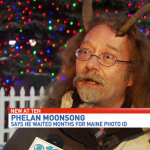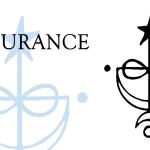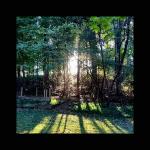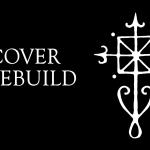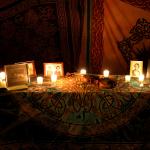I want to share some great recent posts on other blogs.
“I believe that ritual, like poetry and art, can open us to more authentic relationship with the nature of things, the Song of the World, and all of the beings who share the world with us by engaging us in the sacred play of creativity, imagination and creation. …”
2. Ruby Sara @ Onion Work talks about her own “multiple religious belonging”:
“… to me it is a big deal to admit to myself and now to others that I do, wholly, belong to two religious communities – the culture of earth-centered folk religion (particularly in its contemporary expressions in Neopaganism, since this remains the religio-spiritual milieu in which I spent 20+ years of my life), and the culture of liberal/radical/progressive Christianity, as it is expressed predominantly in emergent, anabaptist and mainline Protestantism (Quakerism, Episcopalianism and UCC it seems primarily).”
“… Rather than work for your blessings, which is an extension of a Capitalist Theology, one simply acknowledges that there is already a great providence in the world, and we are best served (and best able to serve) by creating more space for receiving. The cultivation of our openness and ability to receive is the foundation of a Grace Theology.”
Note: The comments to Teo’s post are well worth reading also.
“I am retiring, at least for now, the term Pagan from the title of my blog as the term, as it is most frequently applied by other Pagans, rarely reflects my beliefs or intentions as a spiritual person. The word will continue to have meaning for me within my personal spiritual practice and private life. …”
5. Jason Mankey @ Agora writes about the irony of a “Pagan-Atheist alliance”:
“In another life I used to manage a coffee shop and I employed several Evangelical Christians. Listening to their experiences, I was surprised by how much of what they said mirrored my own faith. They talked about a personal relationship with Jesus in the same way I talk about a personal relationship with Pan. …”
Note: I responded to this in my own post about how Jesus saved me from Christianity … so I could become Pagan.
“… What’s interesting here is that both Havel and Goodenough present transcendent experience not as a big, life-changing event (as in Thorn’s idea of “transcendent thinking”, which I discussed in the previous post ) as it is often taken to be, but more of a relational activity – a “reaching out” towards the world and a commitment to widening one’s perspective.”
7. Melanie Moore @ The Pagan Family outs herself as a non-believing Pagan:
“… I am true to my gods and goddesses: Sun, Moon, Earth, Green, Horn, Storm, Winds, Sea and Fire. I create rituals, I help at gatherings, I practice magic, I publicly defend our ways. But, unlike many of my pagan brothers and sisters, I don’t believe (and, yes, I practice magic, but that’s a previous post). I guess you could call me a “pagan atheist”, but don’t. I’m pagan.”
Note: If you’re wondering about Melanie’s “Green”, “Horn”, “Storm” etc., this comes from Steven Posch’s notion of the Oldest Tribe of Gods. Also check out Melanie’s post on patron deities.
8. IanC @ Into the Mound talks about the limitations of Reconstructionism:
“In the course of doing that for the last 25 years, and of helping a couple dozen groups do it as well, I’ve decided that the real point is to bring modern people into direct contact with the Gods and Spirits. *That’s* how reconstruction will actually be accomplished. By working the rites, calling their names, making their idols, offering of our wealth and talent modern people will draw near the Gods, and bring the Gods near to us. …”
9. Druish inthe Desert responds to my post about the need for a Pan-Pagan statement of first principles:
“… Pagan is not a term like Christian or Muslim, it does not say to those outside of my community that I’m an Odinist or that I’m a follower of Artemis or that I don’t care about divinity at all, nor does it specify my practice limiting it to one set of beliefs or delusions. But, don’t all Pagans consider the Earth sacred? No they don’t, again Pagan has no central dogmatic principle…even though our “leaders” have tried extremely hard to provide one.”
“When I first began to think seriously about consciousness, the idea that the mind might be reducible to chemical changes in the brain struck me as dehumanizing and ugly. You mean all my hopes, dreams, aspirations, talents, fears, and weaknesses, indeed the sum total of all that makes me human might be nothing more than ions sloshing around in a three pound piece of meat? I don’t think I’m alone in this. …”
Note: Check out the discussion in the comments section too.
Finally, I want to highlight a blog I just recently discovered: The Pagan Perspective by Ben Hoshour, which I am adding to the list of blogs I need to check in on regularly.









